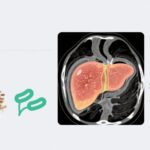Background
Non-alcoholic fatty liver disease (NAFLD) is a prevalent liver disorder characterized by excessive fat accumulation in liver cells, unrelated to alcohol consumption. It is associated with significant complications including progression to liver cirrhosis, liver failure, and increased cardiovascular risk. Managing NAFLD remains challenging, but increasing dietary fiber intake has emerged as a promising approach to improve liver health and metabolic outcomes. Chitosan, a natural dietary fiber derived from chitin found in shellfish exoskeletons, has been suggested to aid in weight management and lipid metabolism. This study aimed to evaluate the effect of chitosan supplementation on liver function, hepatic steatosis predictors, and metabolic indicators in adults diagnosed with NAFLD.
Methods
In this randomized, double-blinded, placebo-controlled clinical trial, 72 adult participants diagnosed with NAFLD were enrolled. They were randomly assigned to receive either 1.5 grams per day of chitosan or a placebo, alongside a prescribed low-calorie diet reducing daily caloric intake by 500 kcal. The intervention lasted eight weeks. Throughout the study, participants’ dietary intake, physical activity, and anthropometric measurements, including body weight and waist circumference, were monitored. Blood samples collected before and after the intervention assessed fasting blood sugar (FBS), cholesterol, triglycerides, high-density lipoprotein (HDL), low-density lipoprotein (LDL), and liver enzymes—alanine aminotransferase (ALT), aspartate aminotransferase (AST), and gamma-glutamyltransferase (GGT). Additionally, hepatic steatosis was evaluated using Fatty Liver Index (FLI), Hepatic Steatosis Index (HSI), and Triglyceride-Glucose Index (TyG) as predictive markers.
Results
Of the initial 72 participants, 66 completed the study. Compared to the placebo group, those receiving chitosan supplementation showed statistically significant reductions in body weight (P = 0.041), waist circumference (P = 0.049), AST (P = 0.040), ALT (P = 0.001), and GGT (P = 0.028). While decreases in fasting blood sugar, triglycerides, total cholesterol, LDL cholesterol, and hepatic steatosis indices (FLI, HSI, TyG), along with an increase in HDL cholesterol, were observed in the chitosan group, these changes did not reach statistical significance (P > 0.05).
Discussion
The findings suggest that chitosan supplementation at 1.5 g/day, combined with a low-calorie diet, may support improvements in liver enzyme levels and anthropometric measures important in the management of NAFLD. The significant reductions in ALT, AST, and GGT indicate improved liver function and reduced hepatic inflammation or injury. Weight loss and reduced waist circumference further contribute to metabolic health and may mitigate disease progression. Although changes in blood sugar and lipid profiles were not statistically significant, the trends suggest potential benefits warranting further investigation with larger sample sizes and longer intervention periods.
Clinical Implications and Future Directions
Chitosan, as a dietary fiber supplement, could be a complementary strategy to lifestyle modifications for NAFLD patients. Its safety profile and ease of use make it an attractive adjunct to dietary interventions. Future studies should explore optimal dosing, long-term effects, and mechanisms by which chitosan influences lipid metabolism and liver health. Investigations into its impact on insulin resistance and inflammatory pathways could provide deeper insights. Clinicians should consider integrating dietary fiber strategies, including chitosan supplementation, into comprehensive NAFLD management plans, emphasizing individualized patient care.
Conclusion
Eight-week supplementation with 1.5 g/day chitosan alongside a calorie-restricted diet shows promise in improving liver enzyme markers and reducing body weight and waist circumference in adults with NAFLD. These findings support chitosan as a beneficial adjunct in NAFLD management, although further clinical trials are necessary to confirm and extend these results.
Trial Registration
The trial was registered at IRCT.ir under the identifier IRCT20140502017522N4 in March 2023.
Reference
Mohsenpoor MA, Parastouei K, Taghdir M, Akbarzadeh M, Abbaszadeh S, Abyazi Heris MA, Mansouri Rad MR, Jafari MA, Borzooei R. The effect of chitosan supplementation on liver function, hepatic steatosis predictors, and metabolic indicators in adults with non-alcoholic fatty liver disease: a randomized, double-blinded, placebo-controlled, clinical trial. J Health Popul Nutr. 2025 Mar 1;44(1):60. doi: 10.1186/s41043-025-00797-3. PMID: 40025618; PMCID: PMC11872331.



